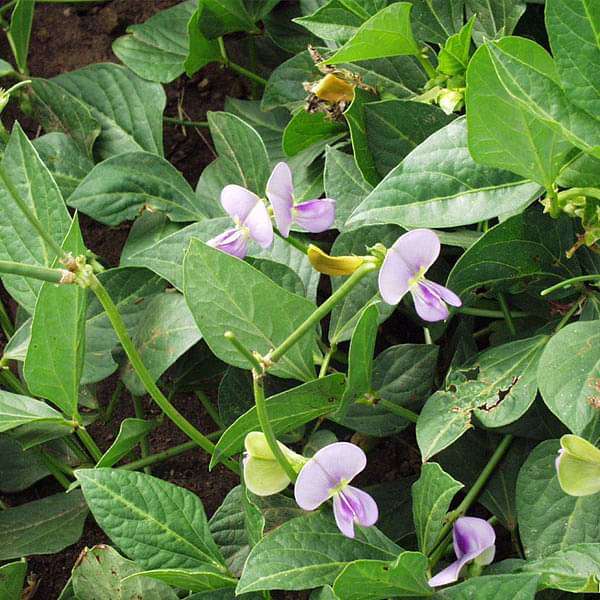
Cow Pea - 0.5 kg Seeds
(MRP Inclusive of all taxes)
- Shipping ₹79 for entire order
- Dispatch in 2-3 weeks
- Country of origin: India

(MRP Inclusive of all taxes)
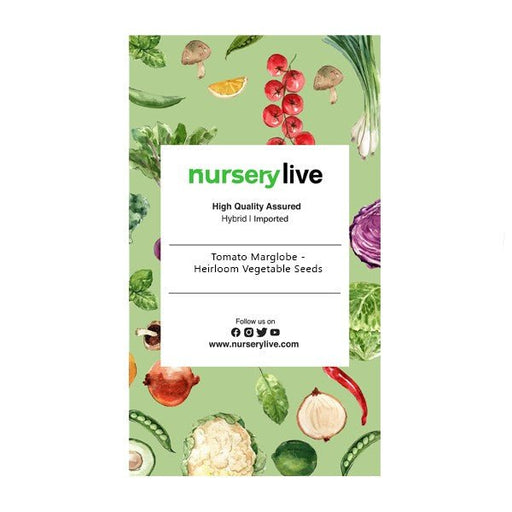
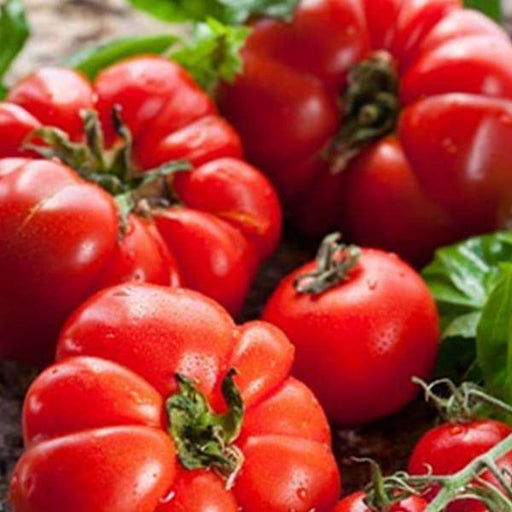 Save 25%
Save 25%
Tomato Marglobe - Heirloom Vegetable Seeds The Tomato Marglobe is a classic heirloom variety known for its robust flavor and exceptional y...
View full details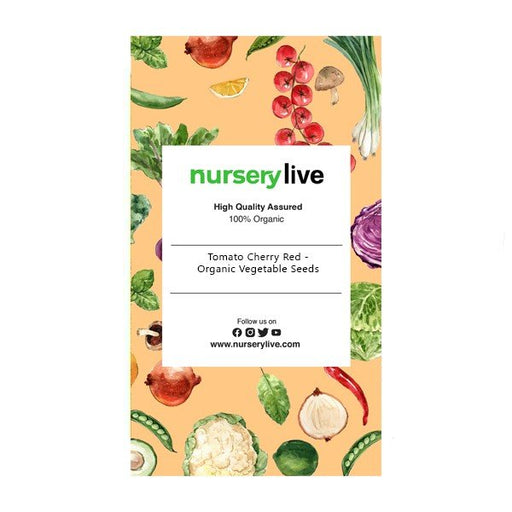
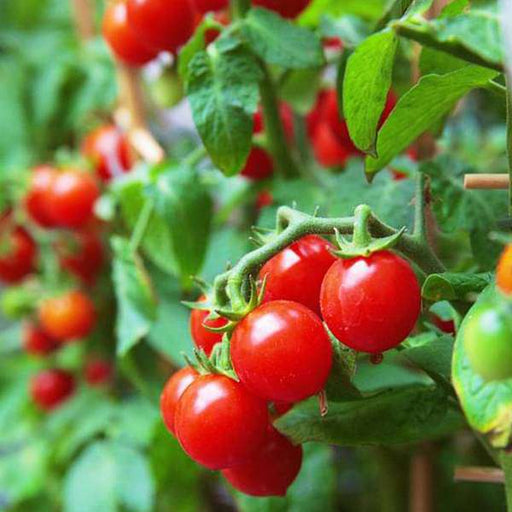 Save 35%
Save 35%
Tomato Cherry Red - Organic Vegetable Seeds Discover the joy of gardening with our Tomato Cherry Red Organic Vegetable Seeds. These vibran...
View full details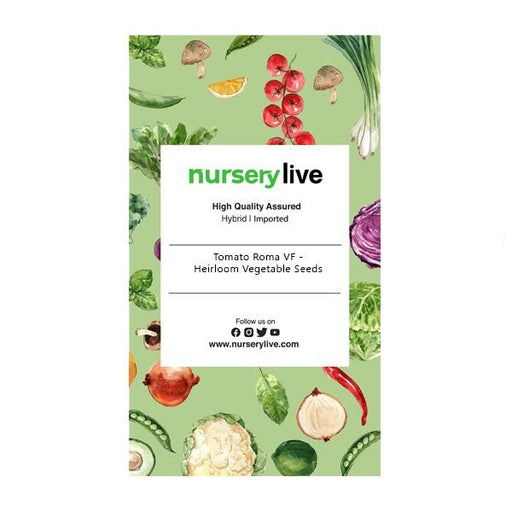
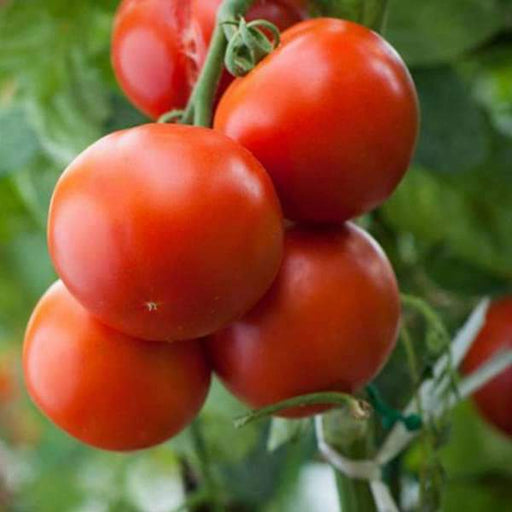 Save 25%
Save 25%
Tomato Roma VF - Heirloom Vegetable Seeds Discover the rich flavor and versatility of the Tomato Roma VF, a prized heirloom variety cheris...
View full details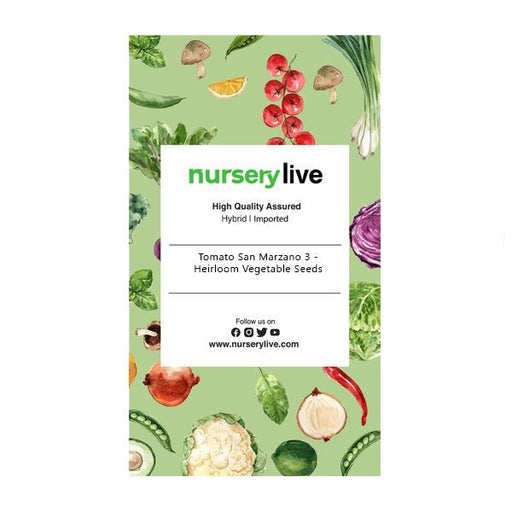
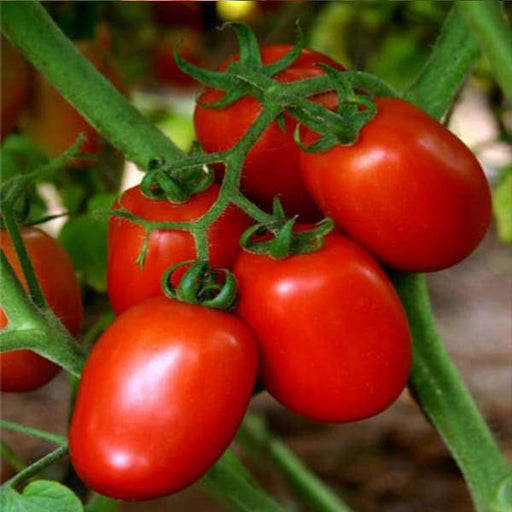 Save 25%
Save 25%
Tomato San Marzano 3 - Heirloom Vegetable Seeds Discover the rich flavor and culinary excellence of the San Marzano 3 Tomato, a prized hei...
View full details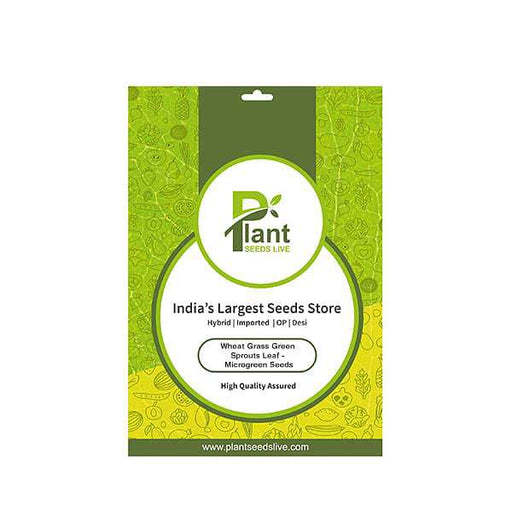
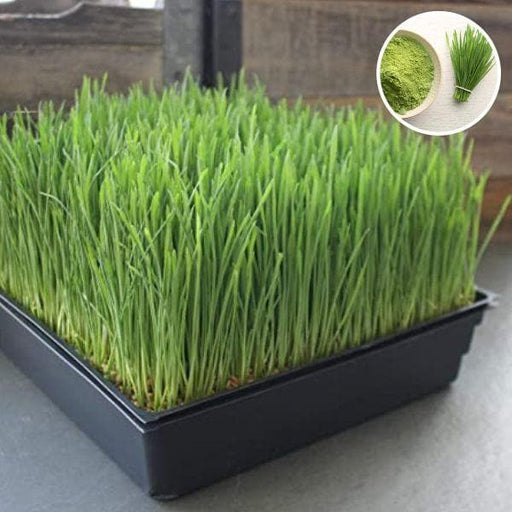 Save 35%
Save 35%
Wheat Grass Green Sprouts Leaf - Microgreen Seeds Wheat Grass Green Sprouts Leaf microgreen seeds are a powerhouse of nutrition, packed wi...
View full details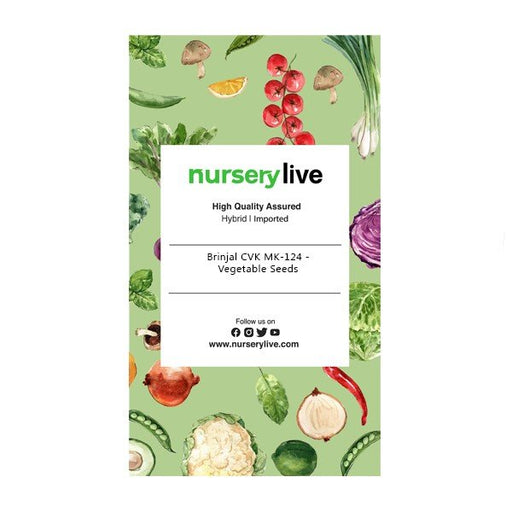
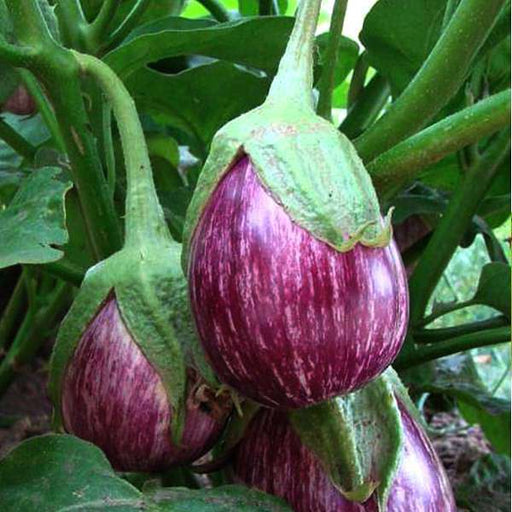 Save 25%
Save 25%
Brinjal CVK MK-124 - Vegetable Seeds The Brinjal CVK MK-124 is a premium variety of eggplant seeds, known for its high yield and exception...
View full details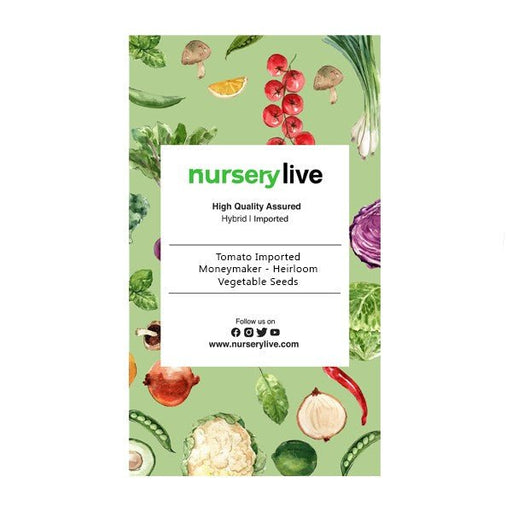
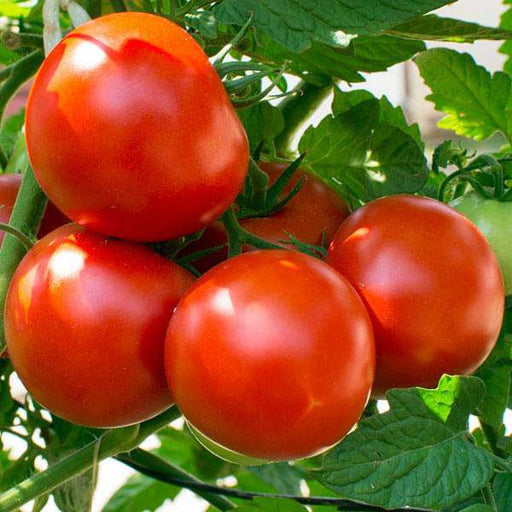 Save 25%
Save 25%
Tomato Imported Moneymaker - Heirloom Vegetable Seeds Discover the rich flavor and vibrant color of the Imported Moneymaker Tomato, a cher...
View full details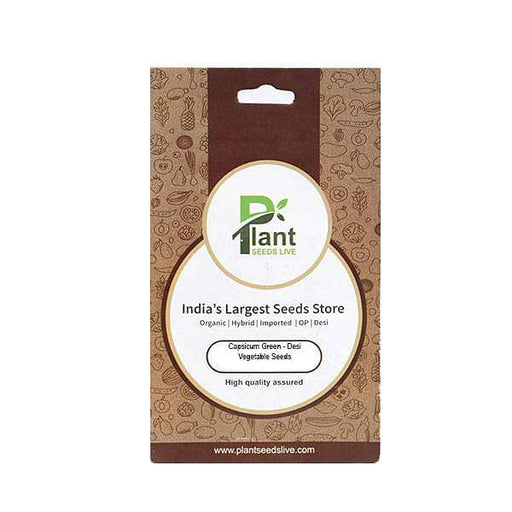
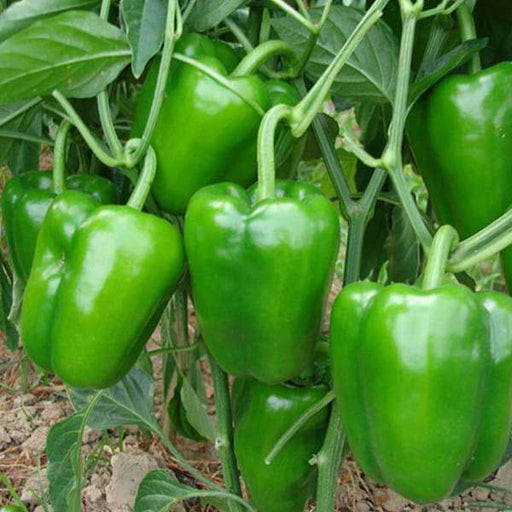 Sold out
Sold out
Capsicum Green - Desi Vegetable Seeds Capsicum Green, also known as bell pepper, is a vibrant and nutritious addition to your garden. Thes...
View full details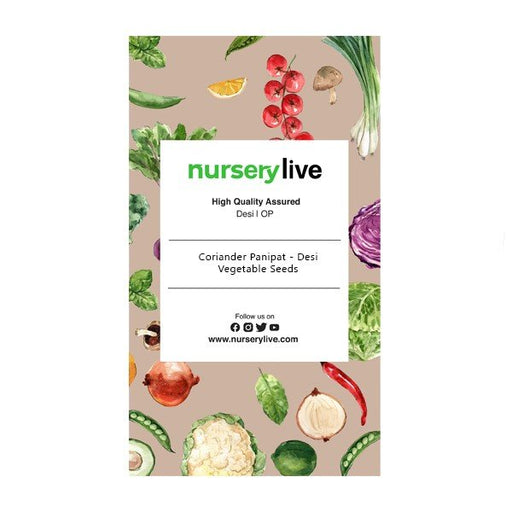
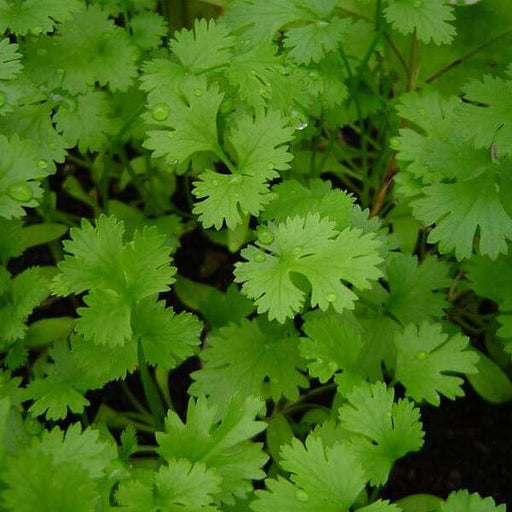 Save 25%
Save 25%
Coriander Panipat - Desi Vegetable Seeds Coriander Panipat is a premium variety of coriander seeds, cherished for its aromatic leaves and ...
View full details
 Sold out
Sold out
Cherry Tomato, Cherry Tomato Honey - Vegetable Seeds Discover the delightful world of Cherry Tomato Honey seeds, perfect for home gardener...
View full details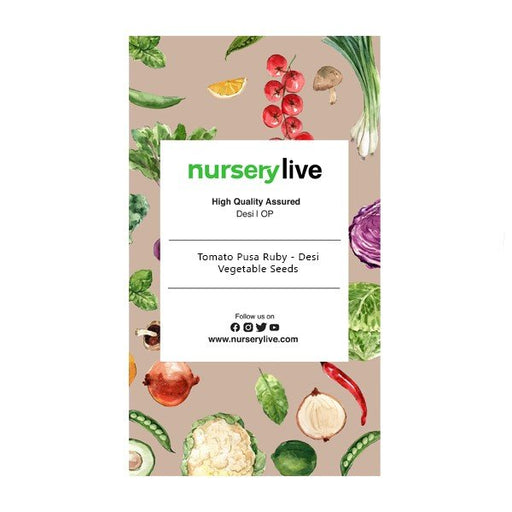
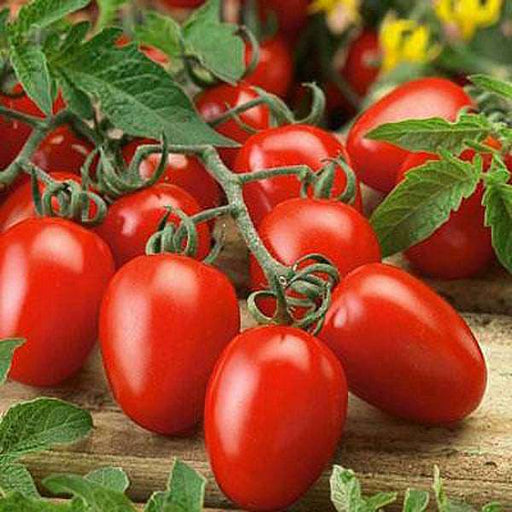 Sold out
Sold out
Tomato Pusa Ruby - Desi Vegetable Seeds The Tomato Pusa Ruby is a premium variety of tomato seeds, renowned for its vibrant red color, jui...
View full details
 Save 25%
Save 25%
Spinach All Green - Desi Vegetable Seeds Introducing the Spinach All Green - Desi Vegetable Seeds, a premium variety of spinach that thriv...
View full details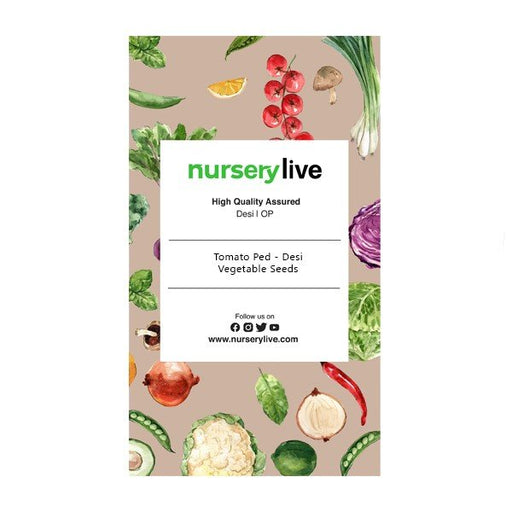
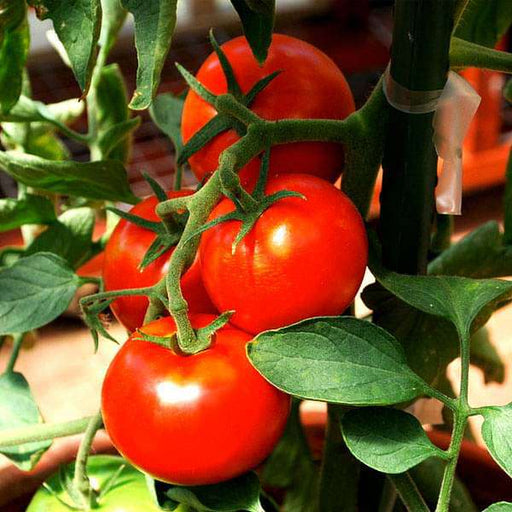 Save 25%
Save 25%
Tomato Ped - Desi Vegetable Seeds Introducing the Tomato Ped - Desi Vegetable Seeds, a premium selection of heirloom tomato seeds that pro...
View full details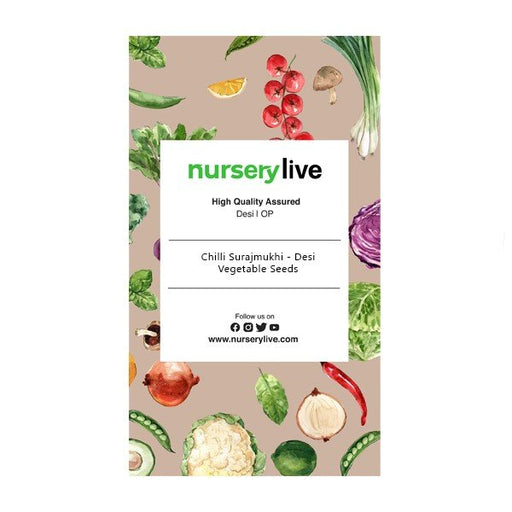
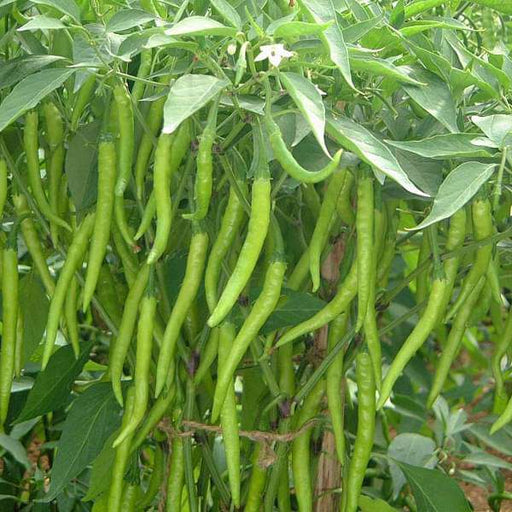 Save 25%
Save 25%
Chilli Surajmukhi - Desi Vegetable Seeds Introducing the Chilli Surajmukhi, a unique variety of desi vegetable seeds that brings a burst o...
View full details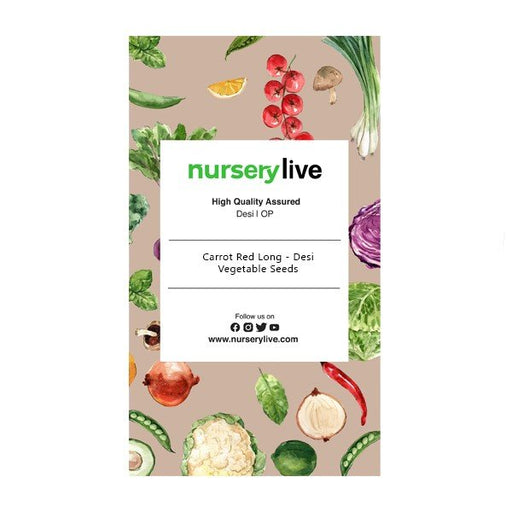
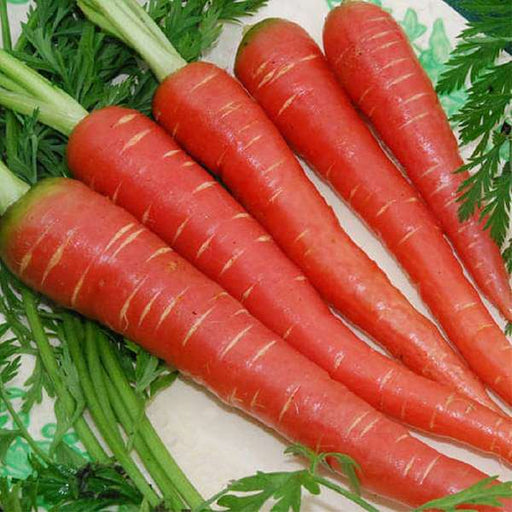 Save 25%
Save 25%
Carrot Red Long - Desi Vegetable Seeds Introducing the Carrot Red Long - Desi Vegetable Seeds, a premium variety known for its vibrant col...
View full details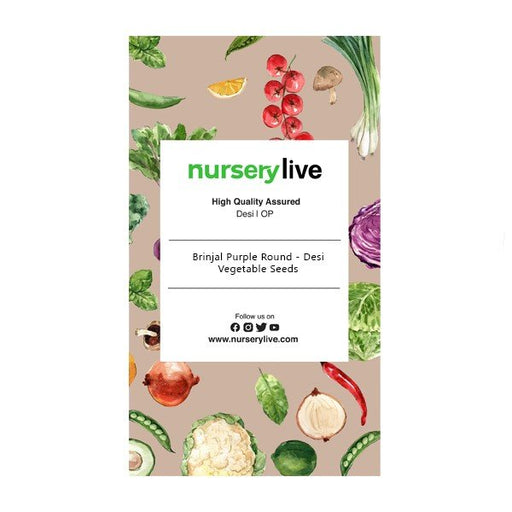
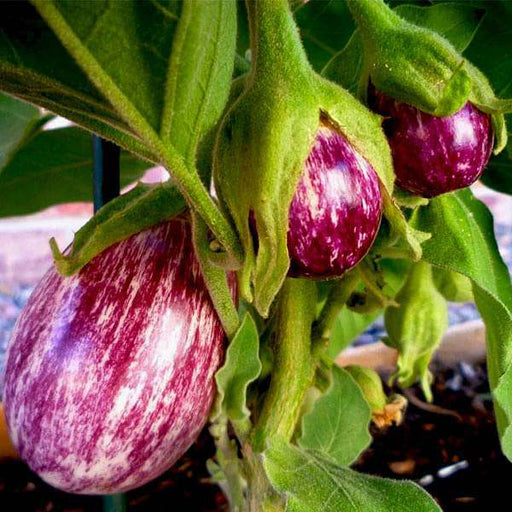 Save 25%
Save 25%
Brinjal Purple Round - Desi Vegetable Seeds Discover the rich flavors and vibrant colors of Brinjal Purple Round, a staple in Indian cuisi...
View full details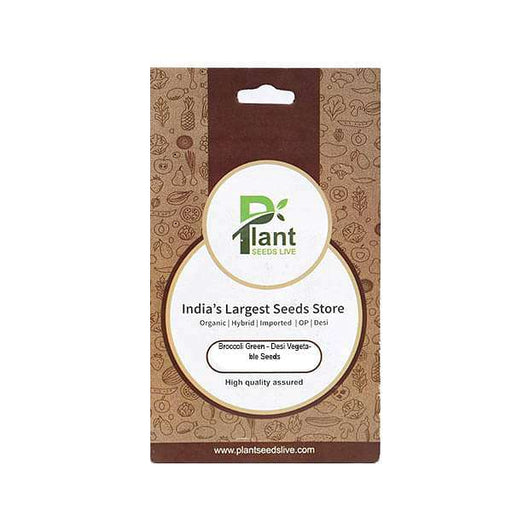
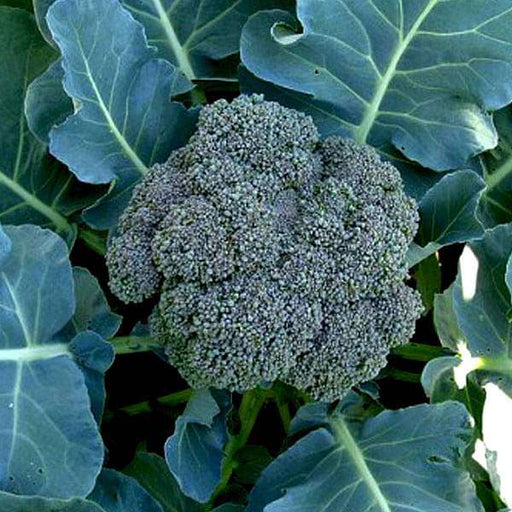 Save 25%
Save 25%
Broccoli Green - Desi Vegetable Seeds Discover the vibrant world of Broccoli Green with our premium Desi Vegetable Seeds. Known for its ri...
View full details
 Save 35%
Save 35%
Best 6 Plants for Perfect Indoor Garden Transform your living space into a lush oasis with our curated collection of the Best 6 Plants for a...
View full details
 Save up to 50%
Save up to 50%
Mini Succulent Garden Pack Transform your space with our Mini Succulent Garden Pack, featuring a delightful collection of 4 any variety beautiful s...
View full details
 Save 30%
Save 30%
5 Best Fragrant Plants Transform your garden or indoor space into a fragrant paradise with our curated selection of the 5 Best Fragrant Plants. Th...
View full details
 Save 24%
Save 24%
Set of 2 Bonsai Looking Grafted Adeniums Transform your indoor or outdoor space with our exquisite Set of 2 Bonsai Looking Grafted Adenium...
View full details Save 45%
Save 45%
Top 4 Die Hard Succulents Pack Transform your indoor or outdoor space with our Top 4 Die Hard Succulents Pack, featuring a curated selecti...
View full details
 Save 30%
Save 30%
5 Best Indoor Plants Pack Transform your living space into a lush oasis with our '5 Best Indoor Plants Pack.' This carefully curated collection fe...
View full details
 Save 25%
Save 25%
Set of 4 Evergreen Air Purifier Plant Pack Transform your indoor space into a lush, green oasis with our Set of 4 Evergreen Air Purifier Pla...
View full details| SrNo | Item Name |
|---|---|
| 1 | Cow Pea - 0.5 kg Seeds |
Cow Pea, also known as Vigna unguiculata, is a versatile legume that thrives in various climates, making it a staple in many agricultural systems worldwide. These seeds are packed with nutrients, offering a rich source of protein, fiber, and essential vitamins. Ideal for home gardens or larger farms, Cow Pea is not only easy to grow but also contributes to soil health through nitrogen fixation.
What makes Cow Pea special is its adaptability to poor soil conditions and drought, making it a sustainable choice for farmers facing climate challenges. This legume is a favorite in many cuisines, providing a delicious and nutritious addition to meals. With its ability to improve soil fertility, Cow Pea is a champion of sustainable agriculture.
Special features of Cow Pea include its rapid growth cycle and resilience against pests and diseases. It can be harvested in as little as 60 days, making it an excellent choice for quick yields. Additionally, Cow Pea's deep root system helps prevent soil erosion, promoting a healthier ecosystem.
Cow Pea plays a crucial role in sustainable agriculture by improving soil health and reducing erosion. Its ability to thrive in arid conditions makes it an excellent crop for regions facing water scarcity. By incorporating Cow Pea into crop rotations, farmers can enhance biodiversity and promote a healthier ecosystem.
When it comes to cow peas, variety is the spice of life! From the classic black-eyed peas to the vibrant purple hulls, each type brings its own flair to your garden and plate. These legumes are not just a pretty face; they’re packed with protein and fiber, making them a nutritious choice for any meal. So, whether you’re a culinary wizard or a garden novice, there’s a cow pea variety that will tickle your taste buds and make your garden the envy of the neighborhood.
Cow peas are like the superheroes of the legume world! Packed with protein, fiber, and essential vitamins, they’re the perfect sidekick for your health. These little gems can help lower cholesterol, stabilize blood sugar, and keep your digestive system happy. Plus, they’re low in fat, so you can indulge guilt-free. Who knew that a humble seed could pack such a powerful punch?
Ready to unleash your inner gardener? Growing cow peas is as easy as pie—if pie were made of legumes! These resilient plants thrive in various soil types and can handle a bit of drought, making them perfect for those of us who occasionally forget to water. With a little sunshine and love, you’ll have a bountiful harvest in no time. Just remember, patience is key; good things come to those who wait (and water).
If you think cow peas are just for salads, think again! These versatile legumes can star in a variety of dishes, from hearty stews to zesty dips. Whip up a spicy cow pea curry or toss them into a stir-fry for an extra protein boost. The culinary possibilities are endless, and your taste buds will thank you for the adventure. So grab your apron and get ready to impress your friends with your cow pea creations!
Cow peas are not picky eaters, but they do have some preferences when it comes to soil. They thrive in well-drained, loamy soil with a pH between 6.0 and 7.0. Think of it as their Goldilocks zone—not too acidic, not too alkaline, but just right! A little organic matter never hurt either, so mix in some compost to give your cow peas the royal treatment. Your plants will reward you with a bountiful harvest!
Every garden has its villains, but fear not! Cow peas are relatively pest-resistant, making them the superheroes of the garden. However, if aphids or beetles dare to invade, a little neem oil or insecticidal soap can save the day. Regularly inspecting your plants and maintaining good garden hygiene will keep those pesky pests at bay. Remember, a vigilant gardener is a happy gardener!
Want to create a harmonious garden? Cow peas are the perfect companions for a variety of plants! They fix nitrogen in the soil, making it richer for their neighbors. Pair them with corn, squash, or even tomatoes, and watch your garden thrive. It’s like a garden party where everyone gets along—no drama, just delicious produce!
Harvesting cow peas is like a treasure hunt! Wait until the pods are plump and dry, then gently pull them from the vine. Don’t rush; patience is key to ensuring you get the best yield. Once harvested, let them dry a bit more before storing. And remember, the more you harvest, the more they’ll produce—talk about a win-win situation!
Once you’ve harvested your cow peas, proper storage is essential to keep them fresh and fabulous. Store dried peas in an airtight container in a cool, dark place, and they’ll last for months. If you’ve got fresh peas, pop them in the fridge and use them within a week for the best flavor. With the right storage, you can enjoy your cow peas long after the harvest season ends!
The cow pea market is on the rise, and for good reason! As more people embrace plant-based diets, the demand for nutritious legumes like cow peas is skyrocketing. They’re not just a staple in traditional cuisines; they’re becoming trendy in gourmet dishes too. So, whether you’re a farmer or a foodie, now’s the time to hop on the cow pea bandwagon!
Cow peas have a rich history and cultural significance in many regions. From Africa to the Southern United States, these legumes have been a staple food for centuries. They symbolize resilience and adaptability, thriving in diverse climates and soils. So, when you plant cow peas, you’re not just growing a crop; you’re participating in a global legacy of nourishment and sustainability.
Cow Pea - 0.5 kg Seeds are the tiny powerhouses of the legume world, perfect for planting in your garden. These seeds sprout into vibrant plants that not only beautify your space but also enrich the soil. Plus, they’re a tasty treat for both humans and livestock. Who knew gardening could be so rewarding
Planting these seeds is as easy as pie! Choose a sunny spot, prepare the soil, and scatter the seeds about an inch apart. Cover them lightly with soil, water gently, and watch them grow. In no time, you’ll have a lush green garden that’ll make your neighbors green with envy!
Growing Cow Pea is like having a garden superhero! They improve soil health, fix nitrogen, and attract beneficial insects. Plus, they’re drought-resistant and can thrive in poor soil. Not to mention, you’ll have a delicious crop to enjoy. Who wouldn’t want a garden that’s both eco-friendly and tasty
You’ll have fresh peas to impress your guests in no time!
Absolutely! Cow Pea is the perfect candidate for container gardening. Just ensure your pot is at least 12 inches deep and has good drainage. With a little love and care, you’ll have a thriving plant that’s ready to produce delicious peas, all while saving space in your garden. Container gardening just got cooler!
Timing is everything! The best time to plant Cow Pea seeds is during the warm months, ideally after the last frost. Aim for late spring to early summer when temperatures are consistently above 60°F. Your seeds will thank you, and you’ll be rewarded with a bountiful harvest. It’s a win-win!
Caring for Cow Pea plants is a breeze! Water them regularly, especially during dry spells, and keep an eye out for pests. A little organic fertilizer can go a long way in boosting their growth. With minimal effort, you’ll have a flourishing garden that’s the envy of all your gardening friends!
You bet! Cow Peas are like nature’s little soil doctors. They fix nitrogen in the soil, improving its fertility and structure. This means healthier plants and a happier garden. So, if you want to give your soil a boost, planting Cow Peas is a smart move. Your garden will thank you!
Yes, indeed! Cow Peas are not just for planting; they’re also a delicious addition to your meals. You can enjoy them fresh, dried, or cooked in various dishes. Packed with protein and nutrients, they’re a healthy choice for any diet. Who knew gardening could lead to such tasty rewards
Harvesting Cow Peas is like a treasure hunt! Wait until the pods are plump and dry, then gently pull them from the plant. If you’re feeling adventurous, you can also harvest them when they’re young and tender. Either way, you’ll be rewarded with a delightful bounty that’s perfect for your next meal.
Cow Peas have a reputation for being tough cookies! While they’re not entirely pest-proof, they are more resistant to common garden pests than many other plants. Their robust nature and ability to attract beneficial insects help keep the bad guys at bay. So, plant with confidence and let nature do its thing!